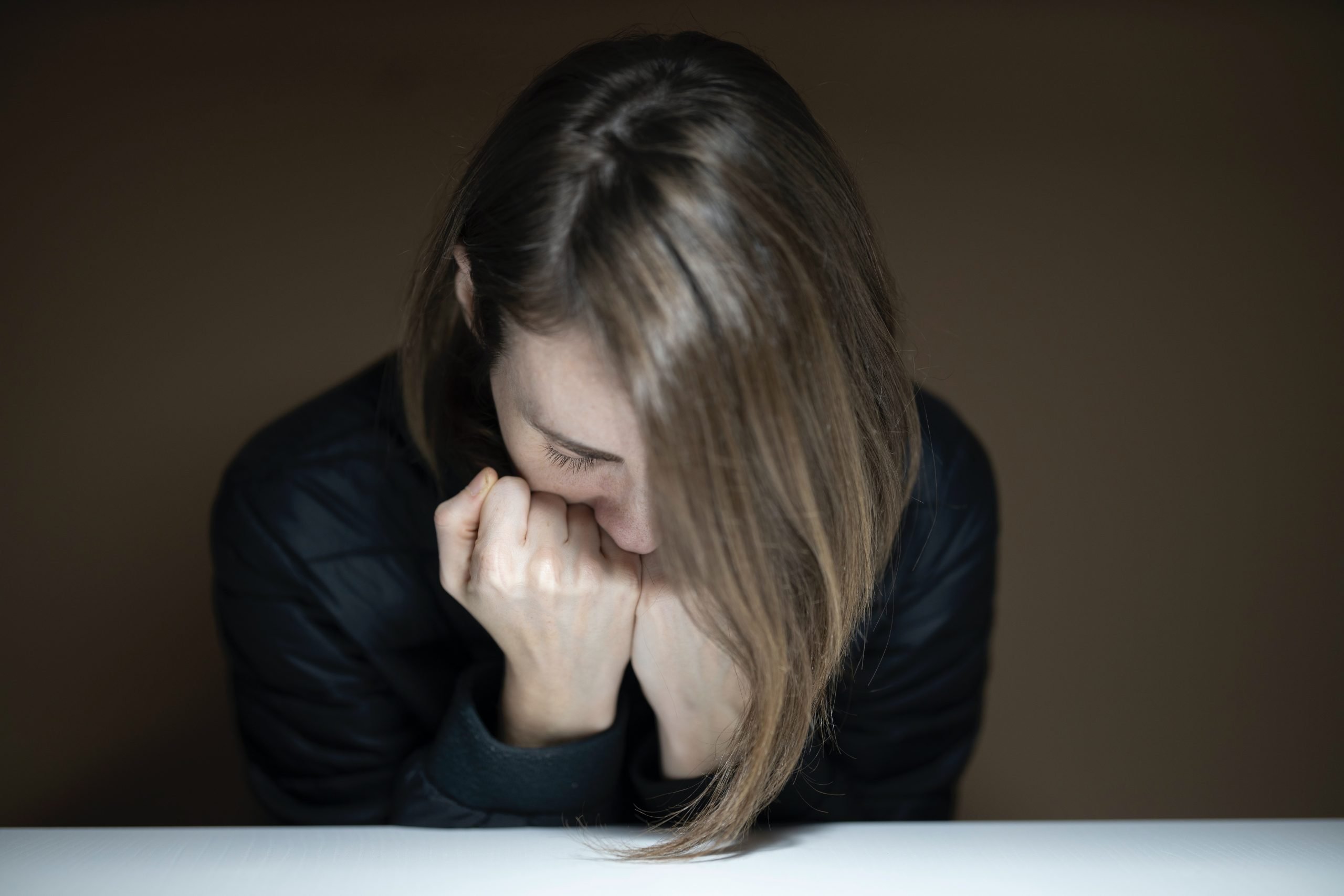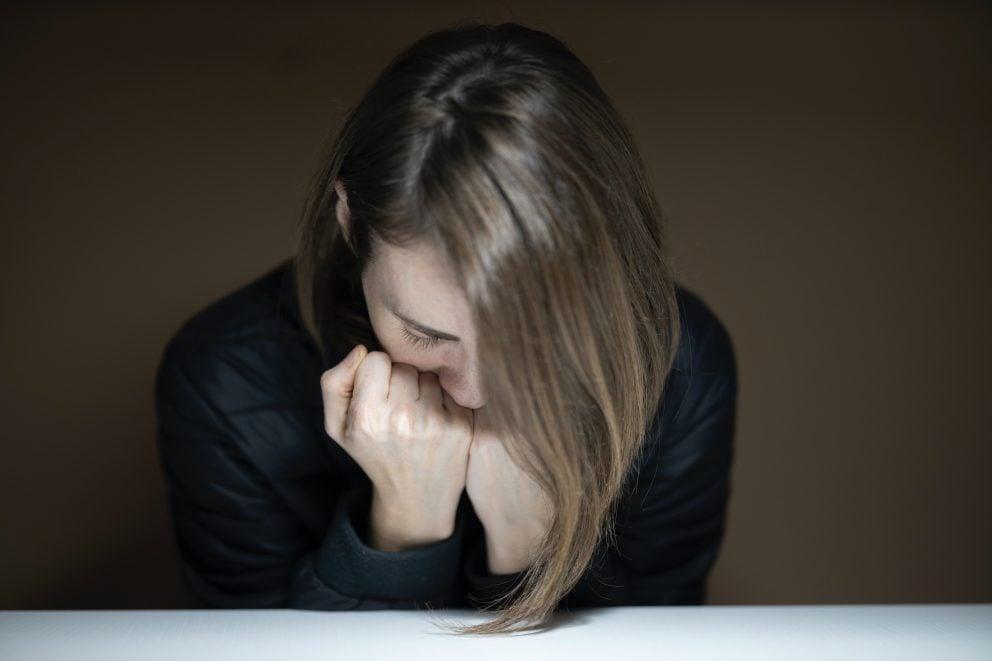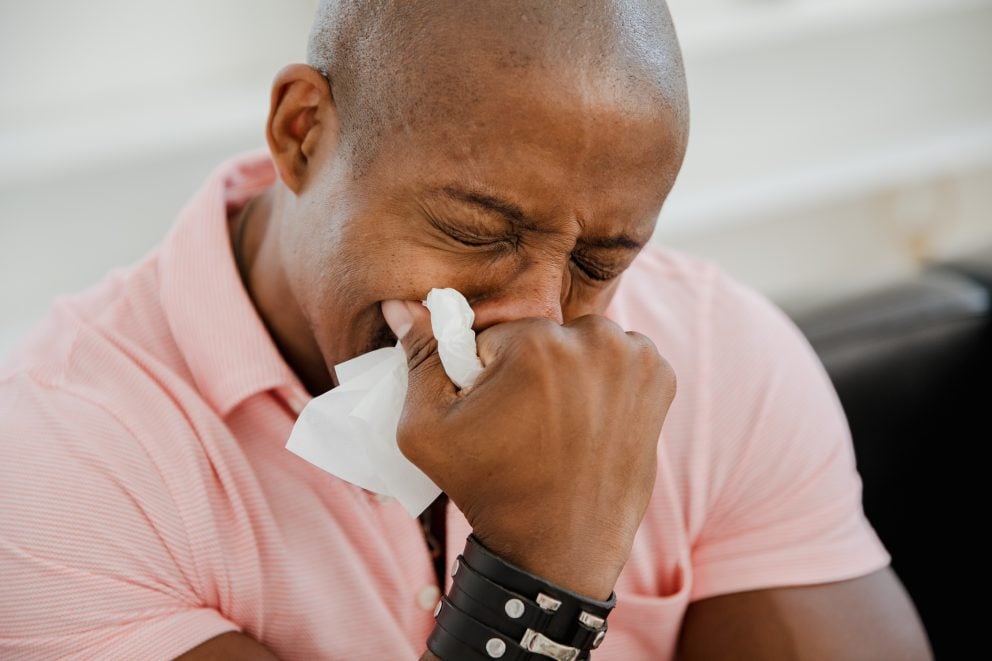
Does Weed Make You Depressed? Exploring the Relationship Between Marijuana and Depression

Photo by Engin Akyurt
Anxiety and depression are common mental health conditions that afflict millions nationwide. Approximately 21 million Americans have experienced at least one major depressive episode. But does weed make you depressed, or is cannabis the answer to your mental health problems?
The relationship between pot and being depressed has been explored multiple times recently. Unfortunately, there is significant competing evidence regarding cannabis and mental health.
In this blog, we examine the available evidence to find out whether marijuana can make depression better or worse.
Apply for a Medical Marijuana Card Online Today
Join over 100,000 patients who have chosen Green Health Docs as their medical cannabis doctors. We have a 99% approval rate and offer a 100% money back guarantee!
Does Weed Make You Emotional?
Answering this question requires understanding how weed – and, more specifically, THC – impacts the brain. Known as Delta-9 tetrahydrocannabinol, THC has a similar chemical structure to the neurotransmitter anandamide.
Anandamide is known as the brain’s bliss molecule because it is associated with increased energy and elevated moods. This is why cannabis is known for making you feel euphoric whenever you consume it.
It does this by interacting with the human endocannabinoid system (ECS). The ECS is critical because it manages processes like memory, learning, emotional processing, hormones, sleep, and even your body temperature.
Relating to cannabis, the two most vital chemical receptors within the ECS is CB1 and CB2. Your CB1 receptors are located throughout your brain and nervous system, whereas CB2 receptors are located within the peripheral nervous and immune systems.
Since THC binds to CB1 receptors, cannabis can cause significant temporary changes in the brain, especially within the hippocampus region. It’s here that THC triggers your brain’s reward system, which causes a release of dopamine.
On the other hand, cannabis can also change your amygdala, which is the part of the brain responsible for triggering the “fight or flight” response. This is why people who consume too much cannabis may feel stressed, anxious, or paranoia. It underlines the importance of dosing appropriately to avoid this from happening.
To make things more complicated, a Journal of Neuroscience study in 2008 showed that THC could tamp down your amygdala’s reaction to threats. In other words, this is why cannabis can make you feel calmer in stressful situations.
With this in mind, depression, and marijuana may have a link. Whether you feel happy, sad, euphoric, or depressed, cannabis can make you emotional.
Does Marijuana Cause Mood Swings?
Did you know that mood swings aren’t as uncommon as you might think?
According to the latest figures, 21.4% of Americans will eventually experience a mood disorder. These can lead to severe mental health issues, or they could be temporary. It all depends on the person and how they use cannabis products.
But does weed cause mood swings?
It can cause them because THC resembles the anandamide molecule. Many people seek out cannabis as a form of self-medication because of marijuana’s therapeutic benefits. In fact, surveys have shown that most people believe marijuana has helped them feel happier and more in tune with their emotions.
If this is the case, someone already experiencing mental health problems may experience a positive mood swing when consuming cannabis.

Photo by RDNE Stock project
Is Marijuana a Depressant?
Most people would instantly assume that marijuana is a depressant because it causes them to feel relaxed. But this is only a small part of the story. Cannabis is a remarkable substance because it is not exclusively a depressant.
Technically speaking, marijuana is a:
- Depressant
- Hallucinogen
- Stimulant
Depending on the person, someone may experience depression after weed, whereas others may feel happy and euphoric. So many factors go into determining how somebody reacts to cannabis, including age, sex, environment, previous usage, type of cannabis, and the strain consumed.
Some common examples of how someone may react to consuming marijuana include:
- Depressant – Sense of relaxation
- Stimulant – Elevated mood
- Hallucinogenic – Heightened perceptions
As you can see, cannabis can have numerous effects on users. Moreover, someone may experience all of the above as part of one smoking session. In conclusion, marijuana is technically a depressant, but it simultaneously covers the stimulant and hallucinogenic categories.
Can Smoking Weed Cause Depression?
If you are feeling depressed when high, could the answer lie in your cannabis use? While it is irrefutable that more weed smokers are diagnosed with depression than other groups, this is no indication that marijuana causes depression.
Scientific evidence has never proven a causative link between marijuana and depression. Instead, the evidence has demonstrated that it is more likely that people who have already been diagnosed with depression will use cannabis as a coping mechanism.
Why is this the case? It happens that many of the causes of depression are also reasons why someone may decide to use marijuana, especially from a young age, including the following:
- Family tension
- Substance abuse
- Previous trauma
- Socioeconomic background
- Age
- Gender
- Genetic makeup
In short, does weed make you sad? The science remains unclear, but what appears to be the case is that if you are already sad, then cannabis could amplify those depressive feelings because marijuana falls into the depressant category.
Does Weed Make Depression Worse?
Cannabis and mental health have long been linked, but can consuming these products make your existing depression worse?
We already know the answer to the question, “Does weed make you depressed?” but if you are depressed, should you steer clear? On the contrary, some scientific research has shown that limited cannabis consumption could support symptom mitigation.
Some of the advantages of using cannabis as you recover from depression include the following:
Improved Mood
Mood swings and constant stress are common symptoms of depression. However, some studies have shown improvements in mood when consuming cannabis.
People with depression may feel calmer and happier while using cannabis, which is why some states have made anxiety and depression qualifying conditions within their medical marijuana programs.
Improved Sleep Quality
Sleep quality is another problem for people who have been diagnosed with depression. But, on average, cannabis users report getting better sleep and feeling more restful.
It’s only natural because sleep is the ultimate way of relieving stress and clearing your head.

Photo by Meruyert Gonullu
Support Concentration
Depending on how severe your depression is, you may struggle to concentrate at work and home. But marijuana’s impact on the brain’s neural mechanisms is advantageous for people with depression.
One case report found that high-CBD strains may help improve attention and reduce depressive symptoms.
Reduce Anxiety
Anxiety often accompanies depression, making life exceedingly difficult for those diagnosed. But a University of Washington study found that low doses of high-strength THC can reduce anxiety.
Conversely, high doses of pure THC can increase feelings of anxiety. In other words, limiting your consumption and choosing the correct dosage could make you feel more at ease.
Can THC Make You Depressed the Next Day?
Are you wondering, “Why does weed make me sad?” If this is you, it could be how much THC you ingest and the cannabis strains you use.
Does smoking weed every day make you depressed? It can, but it can also support you in your battle against depression. But it requires discipline and selecting the correct type of marijuana for you.
For example, some research has discovered that cannabis use may increase symptoms of anxiety when used heavily. Likewise, relying on THC daily could put you at risk of Cannabis Use Disorder (CUD), where your thoughts and feelings become reliant on regular hits of THC.
Despite cannabis’s incredible healing power – like anything – moderation is always best.
Marijuana and Depression: FAQs
Does smoking weed daily make you depressed?
One of the most common search terms for marijuana is “weed making me depressed.” But despite the misconception that cannabis can contribute to the formation of depression, this is false.
Since cannabis possesses depressant characteristics, does weed make you depressed? It cannot make you depressed, but with the wrong strain and dosage, it can amplify your feelings for the worst.
Does weed make you depressed over time?
No, there’s no evidence that weed can make you depressed over time. Some people believe it can because many of the causes of depression are also the same factors that could lead to someone deciding to consume cannabis in the first place.
So, if you’re wondering, “Is weed making me depressed?” the answer is no.
Does smoking too much weed make you depressed?
Smoking too much weed may cause existing feelings of depression to rise to the surface. Evidence has shown that high levels of THC can trigger depression in those already diagnosed.
Can weed make you sad? Technically speaking, yes, but rather than forming these feelings, certain strains of cannabis can bring them to the surface.
Can CBD make anxiety and depression worse?
CBD acts as the exact opposite of THC. It counteracts the THC that enters your bloodstream, helping you to feel relaxed and content.
In fact, CBD alone is often found in various topicals and beverages because of its influence as a relaxant. In short, CBD is beneficial if you are suffering from anxiety and depression.
Does weed and alcohol make you depressed when combined?
Can marijuana make you depressed when combined with alcohol? It’s strongly recommended that you avoid consuming marijuana and alcohol simultaneously. Being drunk and high simultaneously leads to the cross-fade effect, which amplifies the effects.
In some circles, this is known as a “green-out” and can lead to extreme side effects. Notably, since alcohol is a depressant, using both at the same time can result in heightened depressive effects on the brain.
Which type of weed is best for depression?
If you’re complaining that “weed makes me depressed” or “weed makes me sad, ” you could be using the wrong type of marijuana. Knowing which one works best for you can be tricky with so many strains.
Generally, the best strains for combatting depression are sativa or sativa-dominant hybrids. Sativa induces feelings that can counteract depression symptoms, including low energy, lack of appetite, and sadness.
Some of the best strains for depression include:
- Strawberry Cough
- Blue Dream
- Sour Diesel
- Jack Herer
- Green Crack
Clinically Depressed? Apply for a Medical Card Today!
Does weed make you depressed? On the contrary, the right strain can help you suppress many of the most irritating symptoms, meaning marijuana could be helpful in dealing with symptoms of depression.
If you have already received a professional diagnosis of depression, you could be eligible for a medical marijuana card in some states. At Green Health Docs, we can help you understand the rules and support you in applying for your MMJ card online.
Unlock all the benefits of a medical MMJ card and apply for yours with Green Health Docs today.
 This article has been reviewed by Dr. Anand Dugar, an anesthesiologist, pain medicine physician and the founder of Green Health Docs. Graduating from medical school in 2004 and residency in 2008, Dr. Dugar has been a licensed physician for almost 20 years and has been leading the push for medical cannabis nationwide.
This article has been reviewed by Dr. Anand Dugar, an anesthesiologist, pain medicine physician and the founder of Green Health Docs. Graduating from medical school in 2004 and residency in 2008, Dr. Dugar has been a licensed physician for almost 20 years and has been leading the push for medical cannabis nationwide.
